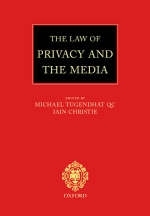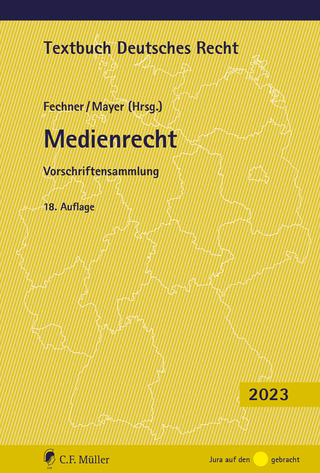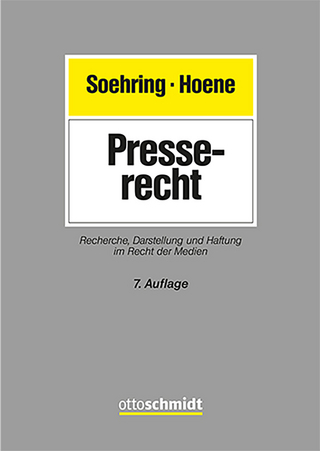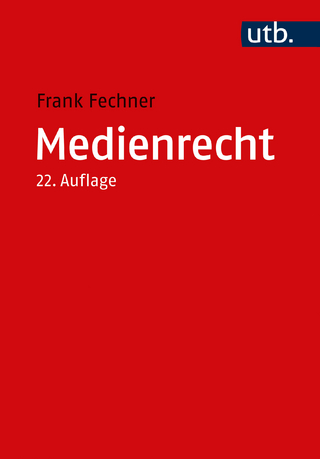
The Law of Privacy and the Media
Oxford University Press (Verlag)
978-0-19-925430-9 (ISBN)
- Titel ist leider vergriffen;
keine Neuauflage - Artikel merken
In December 2000, ten years after the Court of Appeal famously remarked in Kaye v Robertson that 'there is no right to privacy in English law' ([1991] FSR 62), the same court declared 'we have reached a point at which it can be said with confidence that the law recognises and will appropriately protect a right of personal privacy' (Douglas v Hello! Ltd [2001] 2 WLR 992 [110]). What brought about this change of affairs and in what manner might the future law of privacy evolve? A team of barristers from Five Raymond Buildings, the media, entertainment and human rights chambers, have come together to write this timely consideration of the rapidly developing law of privacy in England and Wales. The book considers how the law protects the publication of personal information without undermining the fundamental principle of freedom of expression. Although intended as a practitioners' guide to the law, it includes a consideration of comparative and international jurisprudence, as well as leading academic writings on the subject, in order to elaborate the principles upon which privacy rights are based. These may helpfully guide the development of English law in the years ahead.
At the heart of the book is an explanation of existing causes of action which may be used to protect personal privacy and practical advice on defences and remedies that may be available. It is recognized that recent legislation, most notably the Data Protection Act 1998 and the Human Rights Act 1998, has had a significant impact on the law in this area and full consideration is given to their application. "The Law of Privacy and the Media" is essential reading for all those who act for or against the media, as well as all those with a general interest in the subject. It will be kept up to date with annual supplements.
Michael Tugendhat QC was educated at Ampleforth College, at Gonville & Caius College Cambridge, where he was a scholar and read Classics and Philosophy, at Yale University, on a Henry Fellowship, and at the Hague Academy of International Law, at both of which he studied International Law. He is Judge of the Courts of Appeal of Jersey and Guernsey, a Deputy High Court Judge and Recorder of the Crown Court and a Bencher of the Inner Temple. He trained in Mediation with the World Intellectual Property Organisation, Geneva and acts as arbitrator in ICC and other arbitrations. He is a Fellow of the Institute of Advance Legal Studies, University of London, for which he acted as Chair of the Civil Law Working Party on Corruption in 1999. Michael Tugendhat is married with four sons. Iain Christie was educated at Plymouth College and Hatfield College Durham where he read law. He was called to the Bar (Inner Temple) in 1989 and in 1991 admitted to the bar of the High Court of Australia. Between 1992 and 2000 he was an assistant legal adviser, HM Diplomatic Service in which capacity he acted for the British Government as agent in proceedings before the European Commission and Court of Human Rights and was a member of the Bill team that drafted the Human Rights Act 1998. He is a Fellow of the Society for Advanced Legal Studies and research student at the Institute of Advanced Legal Studies, University of London. He is also a member of the editorial board of the European Human Rights Law Review and a member of the board of management of the Durham University Human Rights Centre. Iain Christie is married with two daughters.
PART I: SOURCES, PRINCIPLES, AND RIGHTS; 1. Context and Background; 2. Principles and Sources; 3. Privacy Rights; PART II: PERSONAL INFORMATION; 4. Publication of Personal Information; 5. Data Protection and the Media; PART III: CAUSES OF ACTION; 6. Privacy and Confidentiality; 7. Privacy and Defamation; 8. Privacy, Copyright, and Moral Rights; PART IV: DEFENCES; 9. Justifications and Defences; PART V: REMEDIES; 10. Remedies; PART VI: ISSUES OF SPECIAL INTEREST TO THE MEDIA; 11. Freedom of Information and Newsgathering; 12. Privacy and the Administration of Justice; 13. The Privacy Codes; 14. Protection of Journalistic Material; APPENDICES: RELEVANT EXTRACTS FROM KEY MEDIA AND HUMAN RIGHTS LEGISLATION ; CONTRIBUTORS: MICHAEL TUGENDHAT QC; DESMOND BROWNE QC; JAMES PRICE QC; RICHARD PARKES; MARK WARBY; STEPHEN BATE; ANDREW MONSON; IAIN CHRISTIE; ALEXANDRA MARZEC; DAVID SHERBORNE; JUSTIN RUSHBROOKE; MATTHEW NICKLIN; JONATHAN BARNES; GODWIN BUSUTTIL; ADAM WOLANSKI; WILLIAM BENNETT; JACOB DEAN; ANNA COPPOLA; SARA MANSOORI; ADAM SPEKER; SAPNA JETHANI
| Erscheint lt. Verlag | 1.11.2002 |
|---|---|
| Co-Autor | Iain Christie |
| Verlagsort | Oxford |
| Sprache | englisch |
| Themenwelt | Recht / Steuern ► EU / Internationales Recht |
| Recht / Steuern ► Privatrecht / Bürgerliches Recht ► Medienrecht | |
| Sozialwissenschaften ► Soziologie ► Allgemeines / Lexika | |
| ISBN-10 | 0-19-925430-3 / 0199254303 |
| ISBN-13 | 978-0-19-925430-9 / 9780199254309 |
| Zustand | Neuware |
| Haben Sie eine Frage zum Produkt? |
aus dem Bereich


